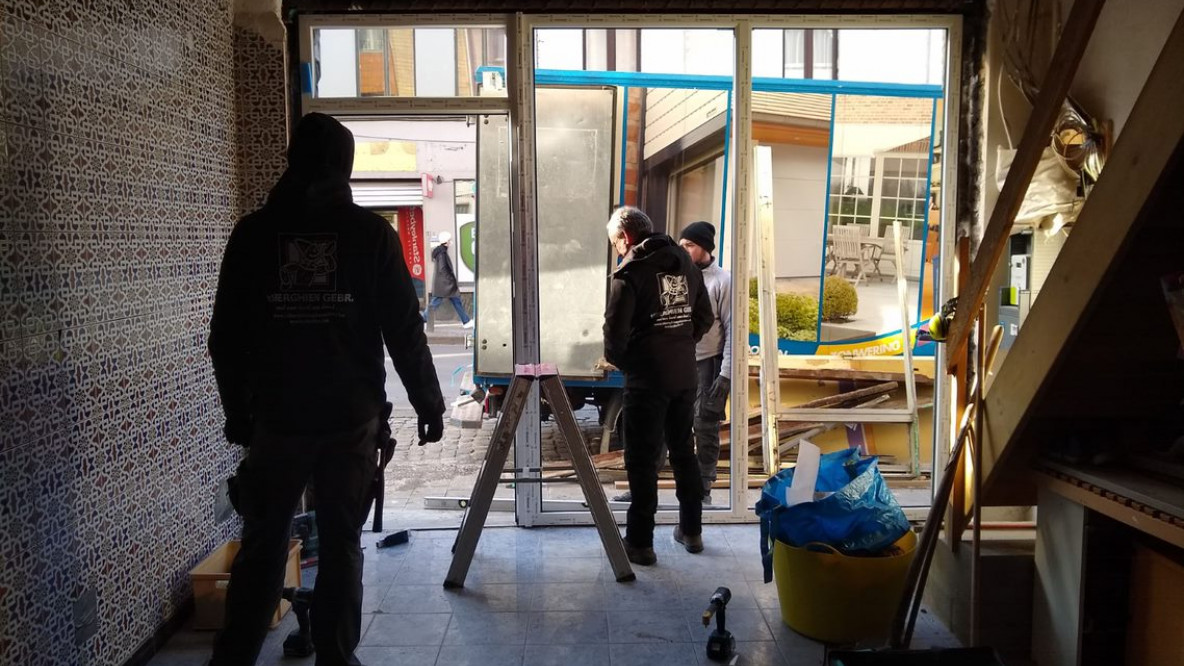Helping People to Happy Homes

In the Belgian city of Ghent, apartments or houses for rent are scarce, expensive, and often of low quality. The waiting lists for social housing are long, reaching waiting times of up to ten years. On the other hand, house ownership represents a viable option for people in Ghent, even for those with a relatively low income. This reality induces many to invest in homeownership, resulting in a situation where about 50 percent of the population lives in privately owned homes.
Yet, the conditions in which many are forced to live are poor: about 6.000 homes do not meet the Flemish building standards in terms of safety, basic living conditions, or energy efficiency. Many households lack the means to renovate their homes and are unable to access private loans and classic tax-support schemes for the necessary renovations. To counter these issues, ICCARus, an Urban Innovative Action (UIA) initiative co-financed by the European Union, is providing 30.000 euros on a recurring fund for selected households to renovate their homes. Salto.bz spoke to the project coordinators Derkien De Baets and Pennina Verhelst about this initiative.
Safe, Energy Efficient, and Liveable Houses for All
„When the project started in 2018, we tried to reach out to 100 homeowners, who are in need of renovating their houses, but are running on a very low income“, De Baets explains. An effort resulting to be more difficult than expected: Despite the large number of people in need and the offer to invest 30.000 euros in the renovation of their homes, Verhelst reveals that many people were afraid to apply: „It’s not easy to admit, that you are on a low income and in need of help. For many people, this represents an embarrassment“, she explains. With the help of social workers advertising the initiative in preselected neighborhoods in Ghent, at social events and markets, they eventually managed to create the necessary awareness. 97 households signed up for the first round of the initiative and 86 of them eventually decided to follow through with the renovation of their homes.
In a first step, the renovations which are decided upon jointly by house-owners and the partners of the initiative, are aimed at making houses comply with the Flemish building standards. This includes important works to the electricity system, exchanging single-glass windows with double-glass ones, installing a proper heating system, or insulating the roof. Yet, many times the budget allows for some flexibility, so as to not only make houses safe and energy-efficient but also more liveable. Here De Baets and Verhelst mention separating a room into two rooms for the children or installing a new kitchen. „We don’t provide money for luxurious renovations, but these are essentials which have an important impact on the living quality in people’s homes. After all, one of our goals is to make sure people are happy and proud about where they live. This can also have an important impact on their social situation, allowing for social gatherings in their homes.“
Complement Existing Initiatives
Importantly, the initiative is not meant to drive out investments in social housing, but to complement them. „If we don’t support those people, who already have a house, they will eventually be forced to sell their houses and be placed on the waiting list for social housing. Through this initiative we are trying to prevent this from happening“, De Baets explains.
Pay Back only in Case of Alienation
So do people get the investment of 30.000 euros for free? Initially, yes. After selecting the right participants based on their living situation and the income at their disposal, people do not need to provide any pre-investments or securities. Nor do they have to pay back the investment like they would with a loan. The investment is based on what is called a recurring fund: „With this recurring fund we only ask people to pay back the investment if they alienate their property, so if they sell their homes or if the owner dies“, so Verhelst. Once the property is alienated, the owner has to pay back the 30.000 euros as well as the additional value generated by the investment. „This way, we want to induce people to remain with their homes for a long time and to take care of them, but also make sure that the fund gets refilled and can be used to finance the next round of investments.“ What is more, thanks to the provided investment of 30.000 euros, people can apply to premiums and tax-exemption schemes for their renovations – a possibility that remains barren for those, who do not have the initial starting capital for the renovation of their homes.
Experiment and Inspire
The project itself is supported by the Urban Innovative Action (UIA) initiative of the European Union, which is meant to experiment in the field of urban design and policy to create new actionable models. This EU initiative thus provides 80 percent of the starting capital for the investments. The remaining 20 percent are born by the collaborating partners represented by the city of Ghent, social organizations, universities, and several renovation companies. Through this model of co-financing, each partner has a stake in the project, inducing them to perform their work in a serious and reliable manner, making sure that people with a low income have access to comfortable, safe, and energy-efficient housing.
Stimme zu, um die Kommentare zu lesen - oder auch selbst zu kommentieren. Du kannst Deine Zustimmung jederzeit wieder zurücknehmen.